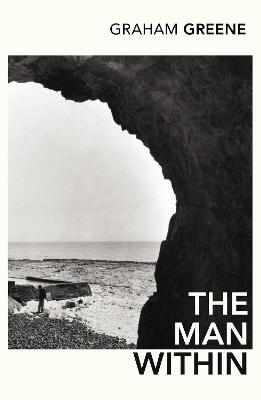
brokentune
Written on May 25, 2014
"Too many local people would come in to watch the smugglers ’ fate – or triumph, as likely as not, with a local jury to try them. Every man is against me, he thought. None are on my side save outcasts and the hoard of strangers who will come from London. Judge, counsel, officers . Must I always stand alone on one side? And his heart protested against the necessity which drove him from his present shelter."
This was interesting. In a way, I really wish I had not known this was Greene's first novel. In fact, I kinda wish I had not known this was written by Greene at all, because
all along the way through this book I kept thinking about how his style would change in his later books, how the characters would develop, how he would work out relationships between characters differently in years to come. All this tainted my experience ofThe Man Within. However, it was still an enjoyable read and Greene's experiment with a stream of consciousness prose that nevertheless manages to capture the intense rhythm of a heartbeat when describing a man on the run was compelling. Gimmicky it may have been, but I have rarely enjoyed following a manhunt as much as the story of Andrews in the opening chapter of this book.
Unfortunately, the rest of the book was less impressive and on occassion the book drags on quite a bit.
It is an early work, but I could not get over Andrews', the main character, attitude towards Elizabeth as someone to be possessed or tamed. In act, none of the characters that interact with Elizabeth seem to see her as a person. She is objectified by all of the characters she interacts with, not least of all by Carlyon who uses as a means to satisfy his revenge against Andrews.
The other aspect the did not enjoy particularly was that Greene still struggled with conveying the characters internal conflict, the very aspect that would become a his trademark in later works. There is a lot of telling why Andrews did what he did rather than using the story to reveal his motivations. And yet, the ending turns this on its head and leaves us with Andrews doing something uncharacteristic for which very little is given by way of explanation. I guess it really was that break in consistency that irked me more than the telling rather than showing aspect.
Greene himself was not that fond of his early novels. He himself recalled his second and third novels from being reprinted for the very reason that he did not think they represented the kind of story that he wanted to write. He claimed they they were overly romantic. I do not know exactly what Greene meant by this but there are glimpses of romanticism in The Man Within which at times seemed a little contrived - though, even in his later works, it is passages like this that give Greene his distinct voice:
"And yet to go without a word or sign seemed impossible. He felt in his pockets. They were empty, save for some ancient crumbs, hard as shot, and his knife. He stared at his knife hesitatingly. His heart told him to leave it as a gift which might help her, a sign that he was grateful; his mind told him that very soon in Lewes he would need it. He opened the blade and stroked it. It was clean and sharp and on it, very roughly engraved, a schoolboy’s first experiment with acids, was his name. It’s my only weapon, he thought. It’s of more use to me than to her. What could she use it for but toasting and cutting bread? I shall be defenceless without it. Leave it for that very reason, his heart appealed. A sacrifice."
